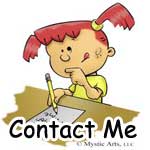Yesterday I didn’t get on the computer (and thus the internet) all day. (A miracle, I know!) It all started on Saturday when we clambered into the car and took a short trip to see my dad and his wife for the day. We had a good time- the kids especially, since they decorated cupcakes and got to sample the sweets as they made them. While we were there, I happened to see a book that I’ve been wanting to read, ‘The Girl with the Dragon Tattoo,’ by Stieg Larsson. Jumping on the chance, I begged my father to let me take it home and read it, which he reluctantly agreed to since he had actually promised the book to someone else, first. (By the way, thanks, Dad!)
We left late and arrived home exhausted on Saturday and so it was late Sunday afternoon before I could even think of opening the book, but as soon as I began to read, there was no stopping. Now, this is a pattern for me. I love to read and can tune out everything while I do so, not even noticing that someone is standing next to me, trying to get my attention. I also have the bad habit of ignoring not just people and things, but time as well. Reading the Twilight series left me completely worn out since I refused to sleep until I had finished. There were several days that I didn’t get to bed until after 4am.
So, onto the book that kept me off of the computer and had me ignoring other responsibilities as well. It is a murder-mystery, with a twist, of course. A financial journalist, Blomkvist, has been framed for libel and accepts the job of writing an autobiography for aging billionaire, Vanger, who also wants Blomkvist to find out what happened to Vanger’s niece forty years earlier. The journalist is helped in his search by Salander, a brilliant young woman whose social ineptness has made her a ward of the state and therefore at risk of being exploited by those who would take advantage of her dependence. Their alliance uncovers not only the answer to a family tragedy, which causes even more trauma than the original event itself, but they find a way to expose the person who framed Blomkvist. (Warning: The secret they reveal along with the abuse that Salander experiences is very graphic and disturbing.)
My favorite part of this novel is how Larsson describes his characters. The main character is introduced and described by another, minor character, and I think that is so cool! The mystery sits on the backburner for about half of the novel while Larsson focuses on the life stories of his hero and heroine, helping to explain their reactions to the revelations they make in the course of the investigation.
It’s probably because I have begun writing again and am currently struggling to write a short story I started about a month ago, but it fascinated me how Larsson put together his narrative. He is getting a lot of attention for a reason- he writes well. It is a real shame that he died before seeing his books published.
While this is not the sort of story I usually enjoy (my favorites are historical novels), this is a very good book. It reads smoothly, the story keeps up pace despite the fact that the novel is quite long. Enjoy, guys!










